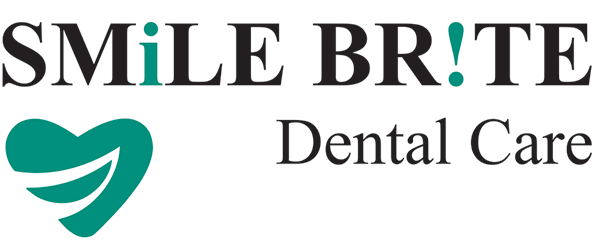Dental Post-op Instructions
Below are general dental post-op instructions for some of our most common procedures. If you have any additional questions about your specific procedure, or if you are experiencing abnormal bleeding, swelling, severe pain, or any reaction to medications, please do not hesitate to contact our office.
If you need further dental post-op instructions, we can be reached at (302) 314-5588. If you contact us after business hours please leave a message with our answering service and someone from our office will return your call.
Oral Surgery, Periodontal Procedures & Extractions
Bleeding
Apply constant firm pressure on gauze over the extraction site. Mild oozing of blood is normal for the first few days.
If bleeding is excessive, place gauze or a moistened tea bag over the surgical site and bite firmly for 45 minutes with constant pressure. Avoid rinsing, spitting, smoking, and drinking through a straw for the first 24 hours after surgery.
Swelling
Swelling and bruising are normal reactions to surgery and vary from patient to patient. The application of ice to the surgical sites during the first 24 hours helps reduce the amount of swelling. The swelling usually reaches its maximum about 48 to 72 hours after surgery
Infection
If the doctor felt that you were at increased risk of infection because of your general health or the nature of the procedure, you will be placed on antibiotic medication. It is important that you follow the directions on the label and take the medication until it is completely gone. An antibiotic oral rinse may also be prescribed.
Hygiene
The day following surgery the mouth should be rinsed gently with warm salt water 2-3 times per day.
*Saltwater Rinse: mix one teaspoon of salt with one cup of lukewarm water – gargle, rinse and spit – repeat until contents of the cup are gone.
Root Canal Therapy
If you were prescribed antibiotics, take these on their recommended schedule until gone. If pain medication was prescribed, take as needed. If you notice any of the following symptoms, please contact our office:
- Increasing tenderness or swelling in the area surrounding the tooth
- A reaction to the medication
- Loss of temporary filling material
- Tooth fracture
Crowns & Bridges
Temporary Crown
Temporary restorations create an obstacle for cleaning, and great care must be taken when brushing and flossing. When brushing, concentrate on the area where the temporary restoration meets the tooth (around the gum line).
When flossing, pop the floss down; gently clean around each tooth, then pull the floss out through the side of the tooth. Do not pull the floss up because the temporary restoration may come with it. Stay away from hard and sticky foods.
If your temporary crown comes off between appointments use Vaseline or toothpaste as a temporary adhesive and please call our office so that we can reapply it for you.
Permanent Crown/Bridge
When the final restoration is placed, your bite may feel a little different. This is just your mouth adjusting to the new addition. If it still feels off in a few days, please call the office for a slight adjustment.
Home Care
Brushing and flossing are always important, but extremely important when crowns and bridges are placed. Impeccable oral hygiene will enable your restoration to last for many years.
Tooth Colored Fillings
tissue.
Sensitivity
Sensitivity to hot and cold is very rare but may occur. You may also feel discomfort in the gums around the tooth, and a warm salt water rinse is generally helpful.
Scaling & Root Planing (Deep Cleaning)
Avoid brushing or flossing the treated area for 12 hours. After 12 hours, it is very important that you continue your daily home care. Soft bristle toothbrushes are recommended. A medicated oral rinse may also be prescribed, follow all instructions on the bottle.
Tylenol or Ibuprofen may be used as recommended for discomfort. Avoid sticky, crunchy, or coarse foods for a week.
Please contact our office should you experience prolonged bleeding or have any other concerns during the healing process.
Dental Implant Post-op Instructions
Usually, you are able to wear your present partial or flipper, if applicable. Sometimes it is necessary to leave it on the night of the surgery. It is important to keep the appliance as clean as possible during the healing period. Every consideration must be given to keep the surgical site clean and free of food particles.
NO SMOKING!
Smoking is to be avoided for the time specified by the doctor. Smoking increases the heat in the surgical site and significantly lowers the body’s ability to heal at the site.
AVOID these after surgery
Alcohol with post-operative medications, commercial mouth rinses, and very hot fluids.
Gentle rinsing of the mouth should be started the day after surgery. Frequent gentle rinsing with salt water will aid in the healing process.
A certain amount of pain must be expected with all types of surgery. Appropriate pain medication has been prescribed for you. Please take it according to the directions. Some swelling and minimal bruising is possible and is to be expected. Apply an ice pack for a period of 20 minutes on and 20 minutes off during the day for the next two days.
A small amount of bleeding following surgery should not alarm you. If bleeding is excessive or continuous, please call us at once. No drinking through straws. The straw creates negative pressure in your mouth and will tend to loosen the sutures.
Diet
Following surgery, it is best to restrict your diet to fluids and soft foods for the first day. A normal diet may be resumed the following day, but you will want to avoid chewing on the implant site until the tissue is completely healed. Soft foods such as Jell-O, pudding, mashed potatoes, and soups are suggested.
Have a Question?
Fill out the form below and we will respond within 24 hours.
About | Services | Patients | Contact
Phone: (302) 838-8306
Email: office@smilebritedelaware.com
Smile Brite Dental Care
300 Biddle Ave., Suite 204
Newark, DE 19702
Get Directions
Newark Office | Sitemap

Copyright © 2024
